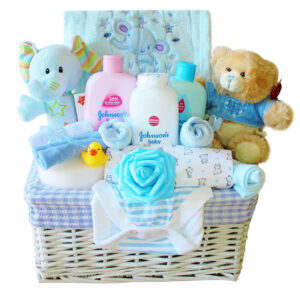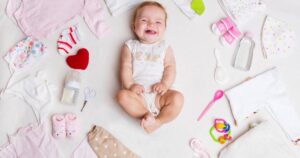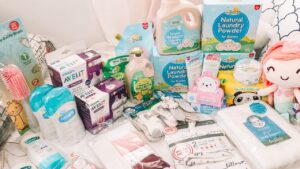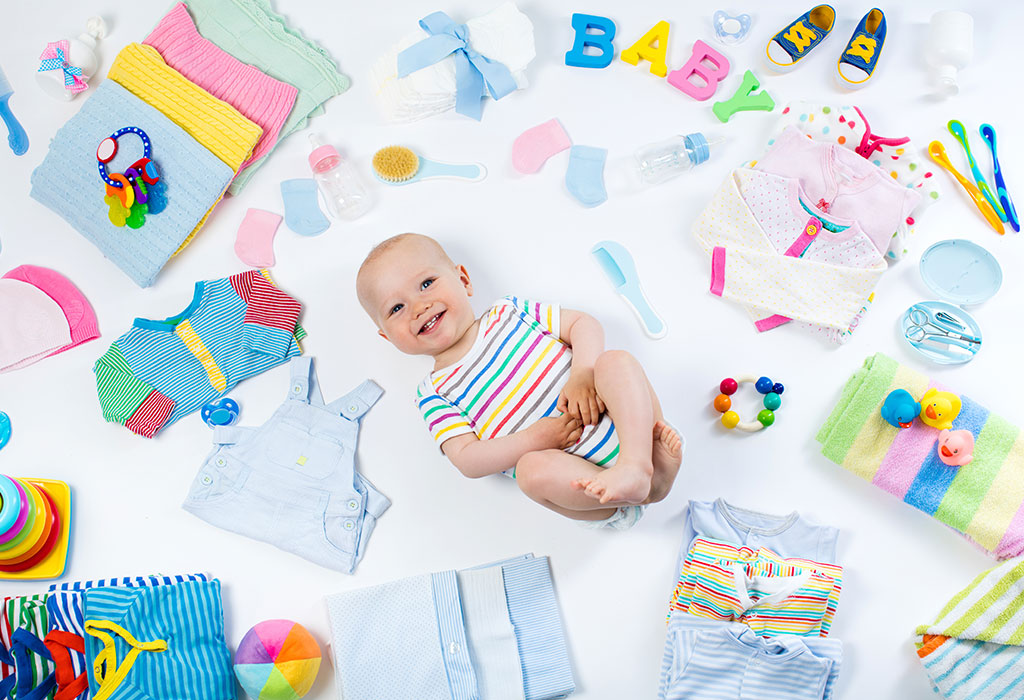Introduction
Welcoming a newborn is a wonderful journey that brings joy, challenges, and endless preparations. Choosing the right newborn essentials from nursery setups to daily necessities ensures a smooth transition into parenthood. This guide covers everything you need to prepare for your little one, so you can confidently create cherished memories.
Nursery Essentials
Setting up a cozy and functional nursery is a top priority for new parents. A well-prepared space makes the baby feel at home and simplifies daily routines for parents.
1. Crib and Mattress
- Crib: A safe crib is essential for any nursery. Look for a crib that meets safety standards, has adjustable mattress heights, and a sturdy frame.
- Mattress: Choose a firm, breathable mattress that fits snugly in the crib. Newborns need a firm surface to sleep safely and comfortably.
2. Changing Table and Pad
- A changing table with safety straps and raised edges helps keep your baby secure during diaper changes. A waterproof changing pad is also helpful to prevent any mess from reaching the table itself.
3. Storage for Baby Essentials
- Use baskets, shelves, or a dresser to store diapers, wipes, clothing, and other necessities. Organizing your nursery makes it easier to find essentials during late-night changes.
4. Baby Monitor
- A reliable baby monitor provides peace of mind when your newborn is in a separate room. Look for models with video capabilities and a good range to monitor your baby from a distance.

Sleeping Essentials
Ensuring safe and restful sleep for your newborn is crucial. Here’s what you’ll need for your baby’s sleeping routine:
1. Swaddles and Sleep Sacks
- Swaddling helps newborns feel secure, mimicking the womb’s environment. Sleep sacks are a great alternative when your baby begins rolling over, allowing for safer sleep without blankets.
2. White Noise Machine
- White noise machines can soothe babies by mimicking the sounds they hear in the womb. These machines can help your newborn sleep longer and more peacefully.
3. Nightlight
- A soft, dim nightlight in the nursery is ideal for late-night feedings and diaper changes without disturbing your baby’s sleep.
4. Pacifiers
- Pacifiers can be helpful in comforting newborns, especially for those who find sucking soothing. Be sure to choose age-appropriate pacifiers to avoid any choking risks.
Feeding Essentials
Feeding is one of the most important newborn essentials; the right tools make it easier, whether you’re breastfeeding, formula-feeding, or both.
1. Bottles and Nipples
- If you plan to bottle-feed, choose bottles designed to reduce gas, such as anti-colic bottles. Have a variety of nipples with different flow rates to find the best fit for your baby.
2. Breast Pump (If Breastfeeding)
- A breast pump can be a lifesaver for nursing mothers, enabling them to express milk for bottle-feeding. Choose an electric or manual pump that is comfortable and easy to use.
3. Nursing Pillow
- A nursing pillow provides support for both mother and baby, making feeding sessions more comfortable. It also helps to reduce strain on the back and arms.
4. Burp clothes and Bibs
- Burp cloths protect your clothing from spit-ups, and bibs keep your baby’s clothes clean during feeding. Look for soft, absorbent materials for easy cleaning.
Diapering Essentials
Diapering will be a big part of your routine in the early months. Having the right items on hand will make this task quicker and more convenient. It is one of the most effective newborn essentials.
1. Diapers (Disposable or Cloth)
- Newborns go through many diapers daily, so stock up on a mix of sizes to be prepared for growth spurts. Consider whether you prefer disposable or cloth diapers based on convenience and environmental impact.
2. Baby Wipes
- Hypoallergenic, fragrance-free wipes are gentle on your newborn’s sensitive skin. Choose thicker wipes for effective cleaning with less waste.
3. Diaper Rash Cream
- Prevent diaper rash by applying a gentle, pediatrician-recommended cream. It’s best to choose creams free of harsh chemicals or fragrances.
4. Diaper Pail
- A diaper pail keeps smells contained and makes it easier to dispose of used diapers. Look for one with a good sealing mechanism to prevent odors from escaping.
Clothing Essentials
Having the right clothing ensures your baby is comfortable in various situations, whether it’s for sleeping, feeding, or outdoor strolls.
1. Onesies and Bodysuits
- Onesies are a staple in any baby wardrobe. They’re easy to put on, provide warmth, and come in various fabrics suited for different seasons.
2. Sleepers and Pajamas
- For nightwear, choose soft cotton pajamas that are easy to take on and off for diaper changes. Footed sleepers are especially useful for keeping your baby warm.
3. Hats and Mittens
- Newborns can quickly lose heat, so a soft hat keeps them warm. Mittens help prevent newborns from scratching themselves.
4. Socks and Booties
- Keep your newborn’s feet warm with socks or booties. Look for pairs with gentle elastics that don’t restrict circulation.

Bathing Essentials
Bath time can be a bonding experience, and having the right items ready makes it safe and enjoyable.
1. Baby Bathtub
- Choose a bathtub designed for newborns, with a non-slip surface and gentle support for your baby’s head and neck.
2. Baby Wash and Shampoo
- Use gentle, tear-free washes and shampoos that won’t irritate your baby’s skin or eyes. Fragrance-free formulas are often best for sensitive skin.
3. Soft Towels and Washcloths
- Soft, hooded towels help keep your baby warm after a bath. Having a set of gentle washcloths also makes washing delicate areas easier.
Health and Safety Essentials
Keeping your baby safe and healthy is a top priority, and certain items can support their well-being at home.
1. Thermometer
- A digital thermometer is a newborn essential for monitoring your baby’s temperature. Ear and forehead thermometers are convenient and give accurate readings.
2. Nail Clippers or Scissors
- Baby nails grow quickly and can be sharp. Use baby-safe nail clippers or scissors with rounded edges to prevent accidental nicks.
3. First-Aid Kit
- A basic first-aid kit should include bandages, antiseptic wipes, and baby-safe fever reducers. Always consult a pediatrician before administering any medication.
4. Humidifier
- A humidifier adds moisture to the air, which can ease breathing and prevent dry skin. This can be especially helpful in colder months when indoor air is often dry.
Travel Essentials
For families on the go, certain travel items are invaluable for ensuring safety and comfort.
1. Infant Car Seat
- A car seat is required by law for transporting your newborn. Choose a model that meets safety standards, with side-impact protection and a secure harness.
2. Stroller
- A lightweight stroller designed for newborns is helpful for outings. Look for a stroller with good suspension, an adjustable seat, and an extendable canopy for sun protection. It is also a newborn essentials product.
3. Baby Carrier or Wrap
- Carriers and wraps allow parents to keep their hands free while bonding with the baby. Choose an ergonomic design that supports both the parent’s back and the baby’s hips. This is the most effective newborn essentials.
Playtime and Developmental Essentials
Encouraging early development is important, and playtime essentials are great for stimulating your newborn’s senses.
1. Play Mat
- A play mat offers a soft and safe surface for tummy time, helping to develop neck and shoulder strength.
2. Soft Toys and Rattles
- Sensory toys, such as rattles and soft plush toys, engage your newborn and help them explore sounds and textures safely.
3. Books
- Cloth or board books with bright colors and high-contrast images are excellent for engaging a newborn’s developing vision.
Must-Have Baby Gear
Equipping yourself with practical baby gear can make everyday tasks much easier. Here’s a look at essential items that support new parents throughout the day.
1. Bouncer or Swing
- A baby bouncer or swing can be a lifesaver, providing a comfortable spot for your baby to rest or play. Many bouncers come with gentle vibration and toy attachments, while swings offer various speeds to soothe your newborn.
2. High Chair (for Later Months)
- Although not immediately essential, a high chair becomes invaluable once your baby starts eating solids (around six months). Look for a high chair that is easy to clean, with a comfortable, adjustable design that will grow with your child.
3. Diaper Bag
- A durable diaper bag with multiple compartments is essential for outings. Choose a style that fits your lifestyle—whether a backpack, tote, or messenger bag—and ensure it’s spacious enough for diapers, wipes, bottles, and extra clothes. It is also a baby essentials product.

Laundry Essentials
Newborns can create a surprising amount of laundry! From spit-ups to diaper leaks, it’s essential to have the right laundry items to handle it all efficiently.
1. Baby-Safe Laundry Detergent
- Newborns have delicate skin, so choose a gentle, hypoallergenic detergent free from dyes and fragrances to avoid skin irritation. Look for detergents labeled for sensitive skin or baby-safe options.
2. Mesh Laundry Bags
- Small mesh laundry bags are perfect for washing tiny items like socks and mittens, preventing them from getting lost in the wash. They’re also handy for washing pacifiers, bottle nipples, and other small items.
3. Stain Remover Spray
- Babies are prone to all kinds of messes, from spit-ups to food stains. A baby-safe stain remover spray can be helpful in pre-treating stains before laundry day, keeping your baby’s clothes fresh and clean.
Soothing Essentials
Helping your baby feel calm and secure is an important part of newborn care, especially during fussy periods. The right soothing items can make a big difference.
1. Rocking Chair or Glider
- A rocking chair or glider provides a cozy place to feed, bond with, or rock your baby to sleep. Many new parents find it invaluable for calming their newborns and easing them into nap time.
2. Swaddle Blankets
- Swaddle blankets are essential for newborns who feel more secure when wrapped snugly. Many swaddles come with Velcro or zippers, making it easier to wrap your baby without the risk of the blanket coming loose.
3. Pacifiers
- Many babies find comfort in sucking, and pacifiers can help soothe them during fussy moments. Choose age-appropriate pacifiers and monitor for any wear to ensure they remain safe for your baby. It is one of the most newborn essentials.
4. Lovey or Comfort Object
- Around three to six months, some babies start to show attachment to soft comfort objects, like a small blanket or plush toy. These can provide a sense of security but always choose objects that are safe, without small parts or loose threads.
Postpartum Essentials for Parents
Newborn essentials aren’t just for the baby—parents also need items to support their well-being during the postpartum period.
1. Nursing Bras and Pads
- If breastfeeding, invest in comfortable, supportive nursing bras and disposable or washable pads to manage leaks. Nursing bras should be easy to unfasten with one hand for convenience.
2. Postpartum Recovery Kit
- Recovery from childbirth takes time, and having items like pain relief spray, ice packs, and sitz bath products can help. Many postpartum kits include all the essentials for healing and comfort.
3. Comfortable Clothing
- Soft, stretchy clothing is essential in the early weeks. High-waisted leggings, nursing-friendly tops, and comfortable pajamas make caring for a newborn easier without sacrificing comfort. It is the baby’s essential product.
4. Hydration and Snacks
- Nursing or not, staying hydrated and nourished is essential for energy and recovery. Keep a water bottle and healthy snacks nearby to stay fueled during the day and night.
Budget-Friendly Newborn Essentials
Welcoming a baby doesn’t have to break the bank. Many essentials are available in budget-friendly versions without compromising on safety or quality.
1. Secondhand Baby Gear
- Items like clothes, swings, and strollers are often gently used and can be found secondhand at a fraction of the original price. Just be sure to check for recalls and ensure everything is in good condition.
2. Bulk Buying Diapers and Wipes
- Buying diapers and wipes in bulk often saves money and ensures you have a steady supply at home. Many stores and online platforms offer discounts on bulk purchases, making it easier to stock up.
3. Multi-Use Items
- Look for items that serve multiple purposes, like a crib that converts into a toddler bed or a changing pad that doubles as a play mat. Multi-use products often save space and can be more economical in the long run.
4. DIY and Homemade Alternatives
- For certain items, you can create DIY alternatives. For example, washable cloth wipes are an eco-friendly option to disposable ones, and you can make them with soft cloth at home. Consider also making a baby-safe laundry detergent to save on costs.
Conclusion
Preparing for a newborn’s arrival can feel overwhelming, but with a well-rounded set of essentials, you’ll be ready to handle daily routines with ease. The items in this guide offer a solid foundation for creating a nurturing, organized environment for your new baby. By stocking up on these essentials and focusing on safety, comfort, and convenience, you’ll be well-prepared for the incredible journey of parenthood.
Frequently Asked Questions (FAQs)
1. What are the absolute essentials for a newborn?
The must-haves include a crib, diapers, wipes, a safe car seat, feeding supplies, and clothing. These items ensure your baby’s basic needs are met for sleeping, eating, and traveling safely.
2. How many diapers should I stock up on for a newborn?
Newborns can go through 8-12 diapers a day, so having around 300 diapers for the first month is a good starting point. It’s wise to have a mix of sizes in case your baby grows quickly.
3. Do I need a breast pump if I plan to breastfeed exclusively?
While not essential for everyone, a breast pump can be helpful for times when you need to be away from your baby or if you want to increase your milk supply. It also offers flexibility if other caregivers need to feed your baby.
4. Are there alternatives to buying a diaper pail?
While diaper pails help control odor, you can also use a regular trash bin with a tightly sealed lid. Empty it frequently to minimize smells, and consider using scented trash bags for added freshness.
5. How soon should I set up the nursery before my baby arrives?
Most parents aim to have the nursery ready a few weeks before the due date to allow time for last-minute adjustments and ensure everything is in place for the baby’s arrival.
By prioritizing these newborn essentials, you’ll have the tools to navigate the early months with greater confidence, making the experience as joyful and smooth as possible. Enjoy every precious moment with your new bundle of joy!

